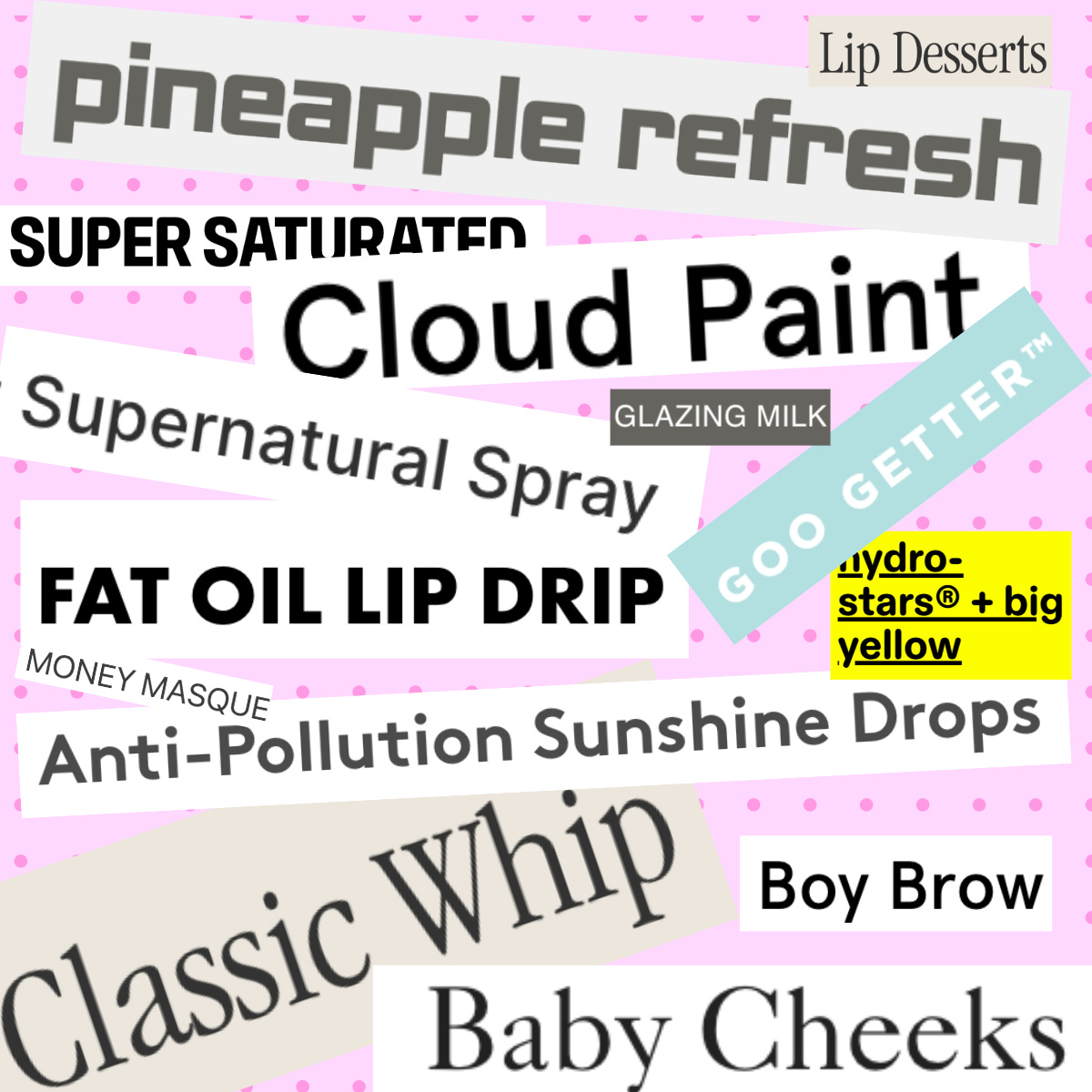Beauty product names are the escapism we need
Clever brands know that it’s all in the name, and no-one understands the seductive power of language more than makeup and skincare companies
Big news this week as Hailey Bieber’s Rhode branched out into an exciting new category: face wash. Except it’s not face wash, it’s Pineapple Refresh. Take a moment to luxuriate in that; it’s spiky, it’s invigorating and it’s way more appealing than another bottle of fancy face soap.
Names have always been a big deal – it’s not an alien, it’s a xenomorph; it’s not a wizard’s all-seeing eye, it’s a data tech company; it’s not a bottle of blue nail varnish, it’s Gelato On My Mind. And Rhode is a master of this; you don’t moisturise your hideous crocodile self, you GLAZE YOUR SKIN; you don’t put on serum, you apply a “dewy hydration layer”.
It’s not a new idea – nail polish companies have been using over-the-top language for forever, and the cult status of Nars’ Orgasm blush is at least a bit because of the name. I’m sure that Glossier’s meteoric rise had something to do with brilliant product language like Cloud Paint, Boy Brow and Balm Dotcom.
And there’s plenty of other beauty brands playing with language. Personal favourite examples include the Nyx Fat Oil Lip Drip, Experiment’s Super Saturated, Colour Wow’s Supernatural Spray, Westman Atelier’s Baby Cheeks and Zitsticka’s Goo Getter (gross, but accurate). If you’re really good at naming your product you don’t even have to explain what it is, you just throw words at people until they buy it, a la Drunk Elephant’s Anti-Pollution Sunshine Drops.
This use of language feels encouraging when so many brands seem to have given up on clever, or even understandable, copywriting – see Peugeot’s disastrous ‘allure is confidence’ tagline, for one. Instead the beauty business is creating tiny moments of linguistic escapism that are pivotal in making up someone’s mind. In a sector that’s packed to the gills with competitors, do you want to buy sun cream, or do you want a bottle of Vacation’s Classic Whip?
It’s a huge step forward from that weird time when every mainstream beauty brand was just making up sciencey words, and pairing them with motion graphics of obscure-looking molecules. It’s also way more exciting than the baldly minimal approach, led by The Ordinary, where ingredients are just called exactly what they are. Forget Pineapple Refresh, you’re getting a 30ml bottle of niacinamide 10% + zinc 1%. If you know what that is, then that’s fine, but if you need a bit of gentle escapism, then it’s the Pineapple Refresh. Finally, this language feels happily far from the guilt-trippy rubric beauty brands often rely on, where skin needs correcting, or concealing, or smoothing, or blurring.
Seeing beauty in its verbal maximalist era is optimistic and encouraging, and it’s also really smart. Social shopping is on the rise, and a lot of people are getting their beauty recs from TikTok or similar platforms. Not only are people reading your product name, but they’re hearing it – so you best make sure it’s compelling enough to stick in their mind when that happens. Forget the ingredients or false promises, we just want our fancies tickled a bit.
Things I enjoyed this week:
Continuing in the language theme, there’s this NY Times piece about Netflix’s use of descriptive show tags - eg, ‘soapy’ and ‘emotional’ for Grey’s Anatomy. Apparently they have a gang of 30 ‘taggers’ who select these, and they work really well.
And also on top use of language, creative ventures company And Rising has a lovely descriptor for Google search:
Anthropic published a paper about how it might deal with AI sleeper agents. It’s quite a read and, to summarise, it’s going to be extremely hard to detect and neutralise them.
Every coffee shop everywhere looks the same and that’s depressing, says The Guardian. I’m not sure I 100% agree, and am a particular fan of this Ho Chi Minh City ‘sip and sleep’ cafe, as well as this puffy cloud pavilion in Shanghai.
Creative agency Loop have a livestreamed claw machine in their office, and anyone can play.
Not news to others, but news to me that there’s a casket industry disruptor brand (apparently Taylor Swift featured one of them in a music video).
The woman that coined the terms ‘cocooning’ and ‘cashing out’ says holoportation and polyamorous relationships with robots are on the way.
And lastly, lots of people seem to be thinking about lunch. Louis Vuitton got everyone excited about a giant leather sandwich bag, and Gordon Ramsay announced a partnership with Sandwich magazine to launch his new Idiot Sandwich show on YouTube – itself trading off the much-loved Idiot Sandwich meme.






